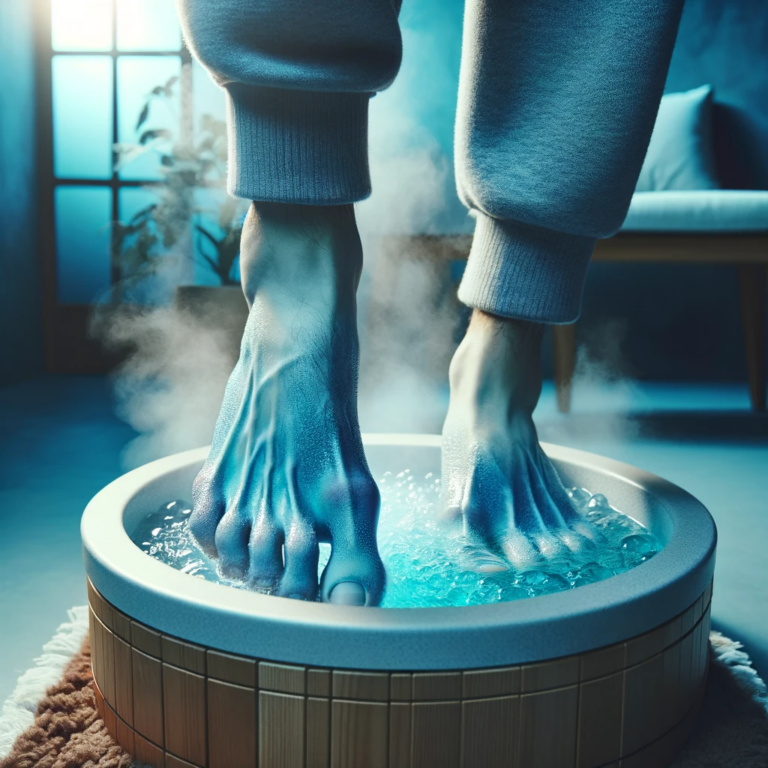ELI5 Summary
The phenomenon of eyes ‘glazing over’ is not an issue of vision, rather a remarkable instance of our brain shifting into an ‘autopilot mode’ to conserve energy during overwhelming or monotonous situations. This phenomenon is linked physically to triggers such as exhaustion, dehydration, and certain illnesses and emotionally to experiences of stress or extreme boredom.
Understanding the eye glaze can gift valuable insight into our emotional health and inform our social interactions. It’s helpful to know that while some common myths suggest eye glaze is a sign of lying or laziness, in reality, it’s a universal human response immune to these factors.
Finally, practical strategies like taking regular breaks, maintaining proper hydration, engaging in mental stimulation, and seeking medical help for persistent symptoms can effectively manage the frequency of our eyes glazing over
Introduction
Ever found your vision shifting into a soft focus during a particularly dry lecture or report? That’s the peculiar instance of our eyes ‘glazing’ over. This blog post seeks not only to shed light on this mysterious phenomenon but also to deliver an astonishing revelation about what’s happening inside us during those moments.
Demystifying the Eye Glaze Phenomenon
An Overview of What Is ‘Eye Glaze’
‘Eyes glazing over’ is an experience we’re all too familiar with. It’s that expression reflecting a somewhat distant look, as if we’re looking at something far beyond what’s right in front of us. Contrary to what one might think, it’s not an issue of vision but rather, a unique shift in our mental state.
The Science Behind Our Eyes ‘Glaze’
The glazing over is not about our eyes but about our brain entering a form of ‘autopilot‘. It’s a smart mechanism our brain evolved to switch to, mostly when overwhelmed with information, stress, or monotony. It’s our mind’s energy-saving mode, where it diverts our attention elsewhere while maintaining a basic level of engagement with the ongoing task.
This glazed expression is a tangible manifestation of a mental state called ‘dissociation’. It’s our brain’s ingenious way to take short breaks and recuperate, even as we’re in the middle of a knowledge-heavy seminar or monotonous paperwork.
The Triggers of The Eye Glaze
Understanding Physical Triggers
Our bodies may trigger eye glaze due to numerous reasons. Exhaustion from inadequate sleep or dehydration from low water intake can prompt this response. Poor nutrition also plays a significant role as it deprives our mind of the necessary fuel to function effectively.
Further, certain medical conditions like diabetes, thyroid problems, or neurological conditions can frequently trigger our eyes to glaze over. Consequently, chronic episodes of eye glaze without an apparent cause warrant medical consultation.
Mental and Emotional Triggers
Just as our physical health can induce eye glaze, so too can our mental and emotional state. Stress and anxiety, for instance, can overload our brain, triggering it to switch into autopilot mode. Situations inducing extreme boredom or disengagement can also lead to our eyes glazing over.
At times, the eye glaze can be a protective response, enabling us to dissociate from traumatic memories or emotionally difficult situations. It’s a psychological defence mechanism that temporarily allows us to cope under challenging circumstances.
Interpreting the Eye Glaze in Our Daily Lives
The Connection Between Eye Glaze and Our Emotions
Far from the notion of the eyes being ‘windows to the soul’, when our eyes glaze over, they are often shielding us from external stimulation or providing a breather from emotional overload. Understanding this response can lend us a significant insight into our emotional health at any given point.
Eye Glaze in Social Interactions
The occurrence of eyes glazing over can communicate volumes in our daily interactions. If during a conversation, you notice the other person’s eyes starting to glaze, it could suggest their interest is dwindling or that they’re feeling tired or uncomfortable with the topic.
However, it’s also important to note that an eye glaze is predominantly a reflexive response to situational factors rather than a permanent state of disinterest or inattentiveness. So, while some adjust their communication style in response to another’s eye glaze, others take it in stride, understanding it as an unconscious natural response.
Strategies to Prevent the ‘Glaze’ in Our Eyes
Helpful Tips and Techniques
While experiencing your eyes glazing over is entirely normal, frequent occurrences can be disruptive. Here are some ways to minimize their occurrence:
- Take regular breaks: Make it a habit of diverting your gaze every 20 minutes, focusing on something about 20 feet away for around 20 seconds. This allows your brain the rest it needs.
- Stay hydrated and well-fed: Proper nutrition and hydration prop up optimal brain function and prevent the eyes from glazing over due to exhaustion.
- Engage your mind: Keep your brain stimulated and alert by engaging in mentally stimulating activities.
- Get enough sleep: Adequate sleep helps maintain good brain function and prevent eye glaze due to tiredness.
Seeking Professional Help: When and Why?
When episodes of eye glaze come frequently, accompanied by other symptoms like constant fatigue, unusual thirst, or significant changes in weight, it’s time to consult a professional. An underlying medical condition may cause these symptoms. So don’t ignore it—seek help to safeguard your health.
Debunking Myths Around the ‘Eye Glaze’
Just like other fascinating human behaviors, the ‘eye glaze’ phenomenon has attracted a host of myths. Let’s set the record straight by debunking some of them:
- Myth: Eyes Glaze Over When You’re Lying: This myth comes from the vague notion that a person being deceptive avoids eye contact. Indeed, there’s no scientific backing to suggest that eye glaze has any relation to an individual’s truthfulness.
- Myth: Glazing Eyes Signify Poor Vision: Glazed eyes are not a symptom of an eye disorder but a neurological response to certain triggers. It’s about our brain, not our eyesight.
- Myth: Only Lazy People Have Glazed Eyes: The phenomenon is not tied to a person’s work ethic or productivity levels. From hardworking CEOs to ordinary folks, anyone can experience their eyes glazing over under specific situational and emotional circumstances.
Conclusion: The Eye-opening Reality of the ‘Glaze’
Far from being an odd or concerning event, the glazing over of our eyes is a remarkable window into the intricate workings of our brain. It’s about our mind’s incredible ability to manage energy, navigate stress, and even protect us from traumatic experiences.
By understanding the science, triggers, signs, and the myths surrounding the “eye glaze,” we gain a valuable perspective into our mental health and social interactions. And by learning the cues, we can not only understand ourselves better but also better respond to the needs of those around us.
Remember, it’s not just about what meets the eye, but discovering the astonishing truth behind our glazing eyes!




